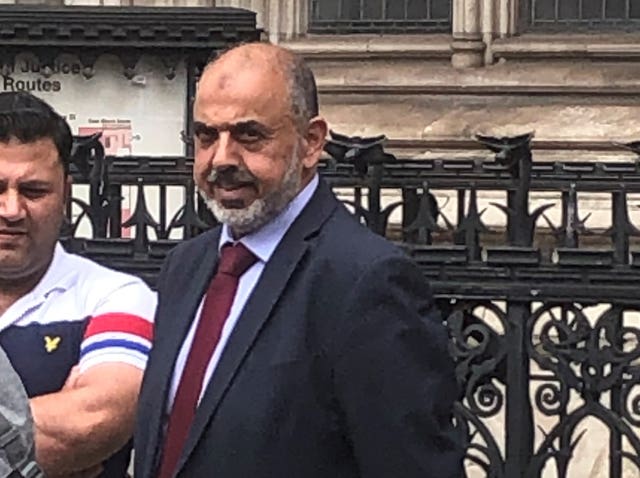A peer who went on to be convicted and jailed for child sex abuse attended the Lords 10 times after being charged, it has been revealed in Parliament.
The case of Lord Nazir Ahmed was highlighted as the House authorities defended a move to automatically exclude members of the upper chamber formally accused of a serious violent or sexual offence.
It followed claims at Westminster that the safeguarding measure undermined “the sacred principle” of innocent until proven guilty.
There were also separate concerns the system could lead to malicious allegations being made by rogue states in a bid to silence members critical of the regime.
Unlike in the Commons, where exclusion can be triggered by serious allegations, the Lords provision would come into force at the point of charge.
It would continue until the allegations are dropped or the member is either cleared or convicted.
I hope that this standing order will never have to be activated, but it is in the interests of those who work and visit here
Lord Gardiner
A peer sentenced to more than one year in prison is expelled from the House.
Proposing the measure drawn up by the Procedure and Privileges Committee, its chairman and senior deputy speaker Lord Gardiner of Kimble said: “I am sure members agree that the safety of those on the parliamentary estate is paramount.
“I hope that this standing order will never have to be activated, but it is in the interests of those who work and visit here.”
Tory former Cabinet minister Lord Lilley said: “I am very relieved that the committee didn’t follow the other place by excluding members on the basis of allegations alone that had led to palpable injustices, for example (Conservative MP) Andrew Rosindell and his constituents.
“He was excluded for two years on the basis of malicious allegations which nobody who knows him could possibly have given credence to and which were subsequently rejected.”
He added: “But I am worried that even the proposal the committee does make undermines the sacred principle of innocent unless and until proven guilty, which Parliament itself ought to uphold emphatically.”
He added: “The proposal justifies a precautionary exclusion by invoking that ‘the duty of care towards those on the parliamentary estate, including school parties’, ignoring the fact they are always accompanied by adults, ‘should be paramount’.
“Paramount means it takes precedence over the presumption of innocence or it means nothing.”
He added: “This is a solution looking for a problem. So far as I know no noble Lord charged with an offence has ever molested anyone on the parliamentary estate, least of all the school parties invoked to defend this proposal.
“I hope the committee will think again and put the presumption of innocence first and foremost.”
Responding, Lord Gardiner said: “An automatic temporary exclusion safeguards the parliamentary community against this risk and indeed visitors on the parliamentary estate.”

He added: “Unfortunately, in the last five years a former member of the House was charged, convicted and jailed for sexual offences against minors, but would have been triggered by this standing order.
“I think it is of concern that the member attended the House on 10 occasions after charge including just weeks before his expulsion.”
While not naming the peer, the Lords later confirmed the senior deputy speaker was referring to Ahmed, who was found guilty in 2022 of sexually abusing two children.
Although his jail sentence was later reduced, he failed last year to have his convictions overturned.
He retired from the Lords shortly before a report recommending his expulsion was agreed.
The exclusion provision will apply regardless of when and where charges are brought.
However, if made overseas, it will lapse after 10 sitting days unless a sub-group of the Privileges Committee decides it should remain in force.
This would allow for the exclusion to be waived if a member is charged with an offence not regarded as unlawful in the UK.
But there are concerns the system could be open to abuse by malign foreign actors.
Tory peer Earl Attlee said: “Sadly, in many countries, the police are either corrupt, incompetent, under-resourced – maybe they are all three – and the same could apply to their court system.
“It is easy to imagine how a false charge could be laid either accidentally or maliciously with the intent of a foreign government or even a non-state actor.”
However, Lord Gardiner insisted there were “very strong safety valves” in place.
You may also like: People are dying waiting for Windrush compensation, says Age UK

